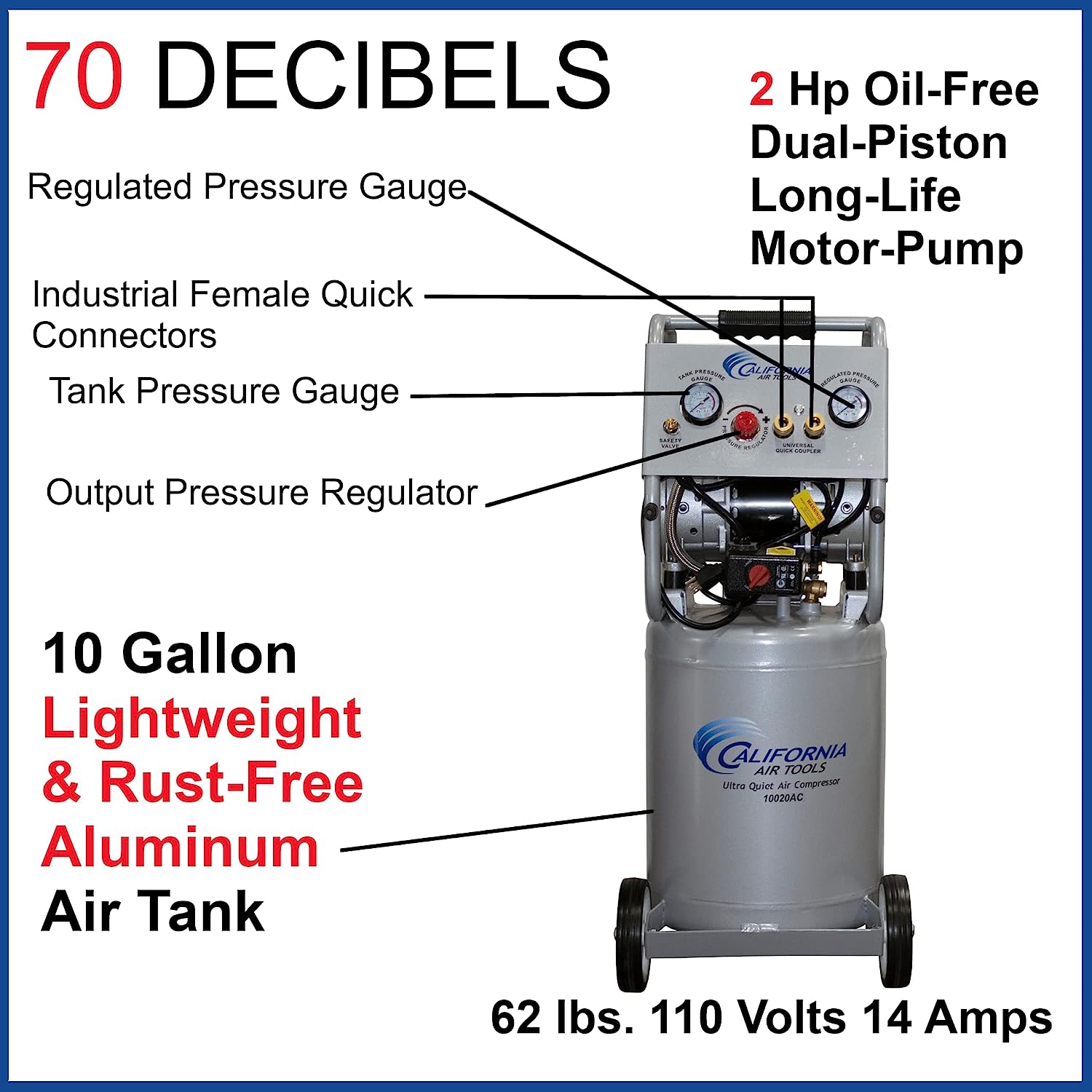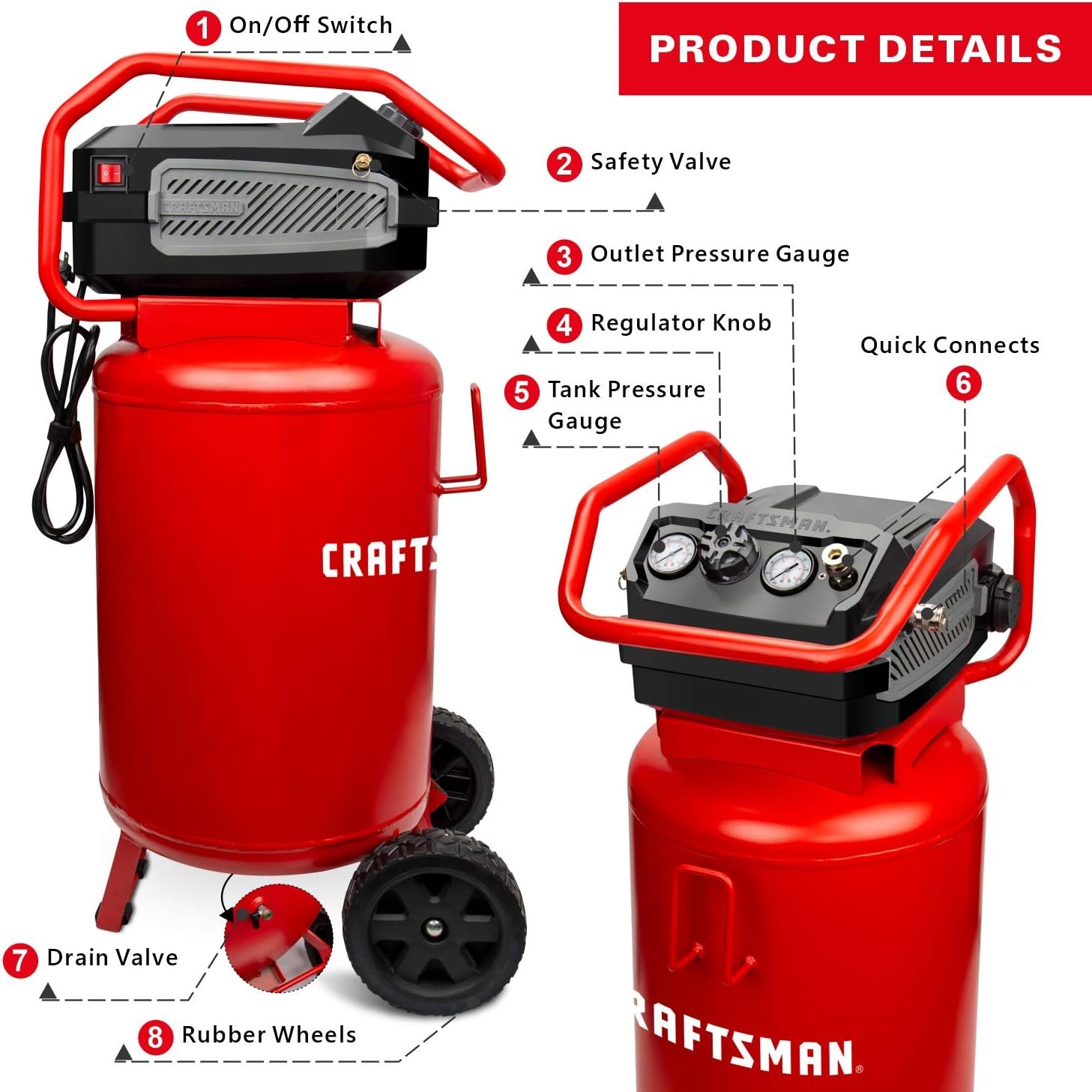If you’re in the market for an air compressor and concerned about the environmental impact, you’ll be pleased to know that there are tax incentives and rebates available for purchasing energy-efficient models. By investing in an energy-efficient air compressor, not only will you save on energy costs in the long run, but you’ll also be eligible for potential tax breaks and rebates that can help offset the initial purchase price. This article explores the various tax incentives and rebates that you can take advantage of when considering an energy-efficient air compressor, ensuring that you make an informed decision while also contributing to a greener future.
Tax Incentives for Energy-Efficient Air Compressors
Overview of Energy-Efficient Air Compressors
Energy-efficient air compressors have gained significant popularity in recent years due to their positive impact on both the environment and energy costs. These compressors are designed to minimize energy consumption while maintaining optimal performance. By utilizing advanced technologies and innovative features, energy-efficient air compressors can significantly reduce electricity usage and greenhouse gas emissions compared to traditional models.
Importance of Energy Efficiency in Air Compressors
Energy efficiency in air compressors is crucial for both economic and environmental reasons. Traditional air compressors consume a substantial amount of electricity and contribute to greenhouse gas emissions. By investing in energy-efficient models, businesses can greatly reduce their carbon footprint and energy costs. Additionally, these compressors offer improved productivity and longevity, leading to substantial long-term savings.
Availability of Tax Incentives
To further encourage businesses and individuals to adopt energy-efficient air compressors, various tax incentives and rebates are available at the federal, state, and local levels. These incentives aim to offset the initial cost of purchasing energy-efficient equipment and make it more affordable for consumers.
Federal Tax Incentives
At the federal level, there are several tax incentives available for energy-efficient air compressors. These incentives are primarily found in the form of tax credits. The Internal Revenue Service (IRS) offers the Energy-Efficient Commercial Buildings Tax Deduction, which provides deductions for the cost of energy-efficient improvements made to commercial buildings, including energy-efficient air compressors. Additionally, the Business Energy Investment Tax Credit allows businesses to claim a tax credit for a percentage of the cost of qualifying energy-efficient equipment.
State-Level Tax Incentives
Many states also provide tax incentives to promote energy efficiency, including the use of energy-efficient air compressors. These incentives vary from state to state, and businesses should research the specific programs offered in their jurisdiction. Some states offer tax credits, rebates, or grants for energy-efficient purchases, while others provide exemptions from sales tax for qualifying equipment.
Local Tax Incentives
In addition to federal and state incentives, local governments may also offer tax incentives for energy-efficient air compressors. These incentives can include property tax exemptions, sales tax exemptions, or tax credits for businesses or individuals who invest in energy-saving equipment. Local programs often collaborate with utilities and other organizations to promote energy efficiency in their communities.
Qualifying Criteria for Tax Incentives
To qualify for tax incentives for energy-efficient air compressors, there are specific criteria that must be met. These criteria typically include the energy-saving capabilities of the compressor, its efficiency rating, and any relevant certifications or standards it complies with. It is essential to understand and meet these requirements to ensure eligibility for tax incentives.
ENERGY STAR Certification
One of the most recognized certifications for energy-efficient equipment is the ENERGY STAR certification. Air compressors with the ENERGY STAR label meet strict energy performance guidelines set by the U.S. Environmental Protection Agency (EPA). Purchasing an ENERGY STAR-certified air compressor increases the likelihood of qualifying for tax incentives and ensures that the equipment meets high standards of energy efficiency.
Energy-Efficiency Ratio (EER) Requirements
Aside from ENERGY STAR certification, specific energy-efficiency ratio (EER) requirements may need to be met to qualify for tax incentives. EER measures the efficiency of an air compressor by comparing its cooling capacity to the electrical power it consumes. Higher EER ratings indicate better energy efficiency. Tax incentives often have minimum EER requirements to ensure that the equipment meets a certain level of energy savings.
Additional Environmental Considerations
When considering the purchase of an energy-efficient air compressor, it is essential to evaluate its environmental impact beyond energy efficiency. Look for compressors that use eco-friendly refrigerants, minimize noise pollution, and have proper disposal protocols for older equipment. By considering these factors, you can further contribute to sustainability efforts and comply with environmental regulations.
In conclusion, tax incentives for energy-efficient air compressors provide significant financial benefits to businesses and individuals looking to reduce energy costs and environmental impact. By understanding the available incentives at the federal, state, and local levels, as well as the qualifying criteria, businesses can make informed decisions and take advantage of the opportunities provided. Investing in energy-efficient air compressors not only helps save money but also contributes to a greener future and a more sustainable planet.
Joey has over 15 years of experience in the air compressor industry. As a senior test manager at Pneumatic Performance Labs, he oversees all testing and evaluation of air compressors. Known for his technical expertise and leadership, Joey has built a strong team of engineers who provide trusted third-party testing capabilities to air compressor companies nationwide.









